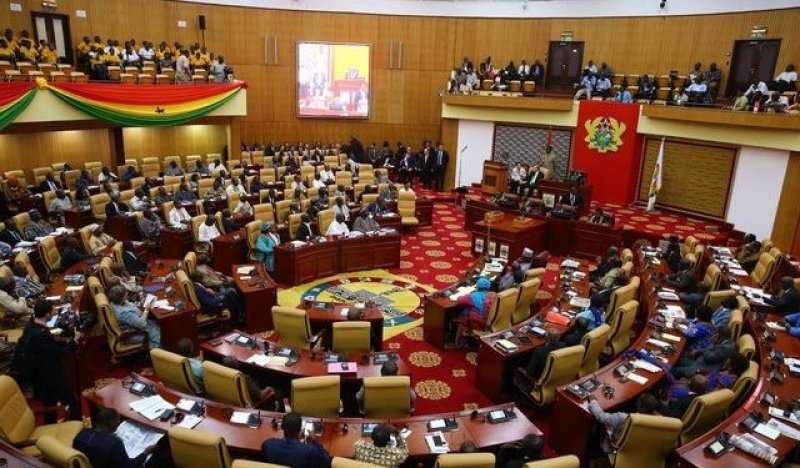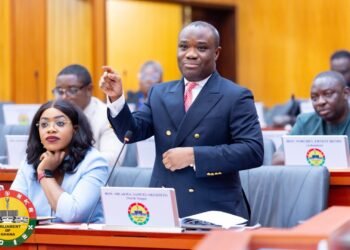Parliament has set up a committee to investigate the National Cathedral project and conduct an enquiry into all related matters and make appropriate recommendations for consideration by the House.
Member of Parliament for North Tongu, Samuel Okudzeto Ablakwa, together with five other minority members, filed a private member’s motion demanding a probe into the stalled project despite the injection of about $58 million into the facility.
Second Deputy Speaker, Andrew Amoako Asiamah, adopting the motion for onward action by the leadership of the House, revealed that the motion is a very important one and “I pray that this house will approve this motion under order 919”. He explained that order 919 provides that the House at any time by motion appoint a special or Ad hoc committee to investigate any matter of public importance.
“The National Cathedral project of Ghana is essentially the most expensive project in the history of Ghana. Already as we speak, this project has ballooned from 100 million to $400 million and it’s still a moving target, it is still rising.
“So far, about $58 million has been spent on the project and what we see has become a subject of considerable controversy. We only see a hole and we are not too sure really if it is $58 million that has gone into the project. We know that the project has been abandoned since March last year.”
Andrew Amoako Asiamah
Mr Asiamah noted that as it stands, the cost continues to go up, there are liabilities, interests and suspension claims which on its own runs into about $52 million by his check.
Reacting to this, North Tongu legislator, Samuel Okudzeto Ablakwa,, expressed his gratitude to all colleague MPs from both sides and Ghanaians.
Parliament passes UNESCO Bill
Meanwhile, Parliament has passed the Ghana Commission for UNESCO Bill, 2022, which seeks to help the country achieve the aims and objectives of the United Nations Educational, Scientific and Cultural Organization (UNESCO).
The object of the Bill is to establish the Ghana Commission for UNESCO to carry out the aims and objectives of UNESCO. Also, the aim of UNESCO is to contribute to the building of peace, eradication of poverty, sustainable development and intercultural dialogue.
Gifty Twum Ampofo, Deputy Minister for Education in charge of Technical, Vocational Education and Training (TVET), moved the motion for the House to pass the Ghana Commission for UNESCO Bill.
On his part, Mr Kwabena Amankwa Asiamah, Chairman of the Parliamentary Committee on Education, in his report to the House, stated the committee noted that with the bill passed, the Ghana Commission for UNESCO would become a fully-fledged Government agency and be ultimately funded by the Consolidated Fund and other sources of funds identified under Section 38 of the bill.
He indicated that as an agency of Government, financing of the Commission’s activities and programmes was expected to be used for the payment of annual UNESCO-assessed contributions, which were mandatory contributions from the member states by virtue of the country’s membership.
Furthermore, Mr Asiamah explained that the committee was informed that apart from the annual subscription, funds must be provided for the cost of running the Secretariat of Ghana’s Permanent Delegation to UNESCO in Paris, France, which entails renting office space at UNESCO, payment of compensation and other related goods and services and capital expenditure.
Additionally, he revealed that the committee also agreed that adequate funding must be provided for building capacity and orientation of government agencies on UNESCO matters and initiatives, implementing projects in line with UNESCO’s biennial programme roll-out and for costs for Ghanaian Delegation attending UNESCO statutory intergovernmental meetings.
To achieve its aims and objectives among member states, UNESCO uses national co-operating bodies known as National Commissions.
Article VII of the Constitution of UNESCO mandated each member state to arrange for associating principal bodies interested in educational, scientific and cultural matters with the work of the Organisation, preferably by forming a National Commission broadly representative of the Government and the principal bodies.
READ ALSO: Finance Minister Cannot Say Economy Has Turned A Corner- Gyamfi























